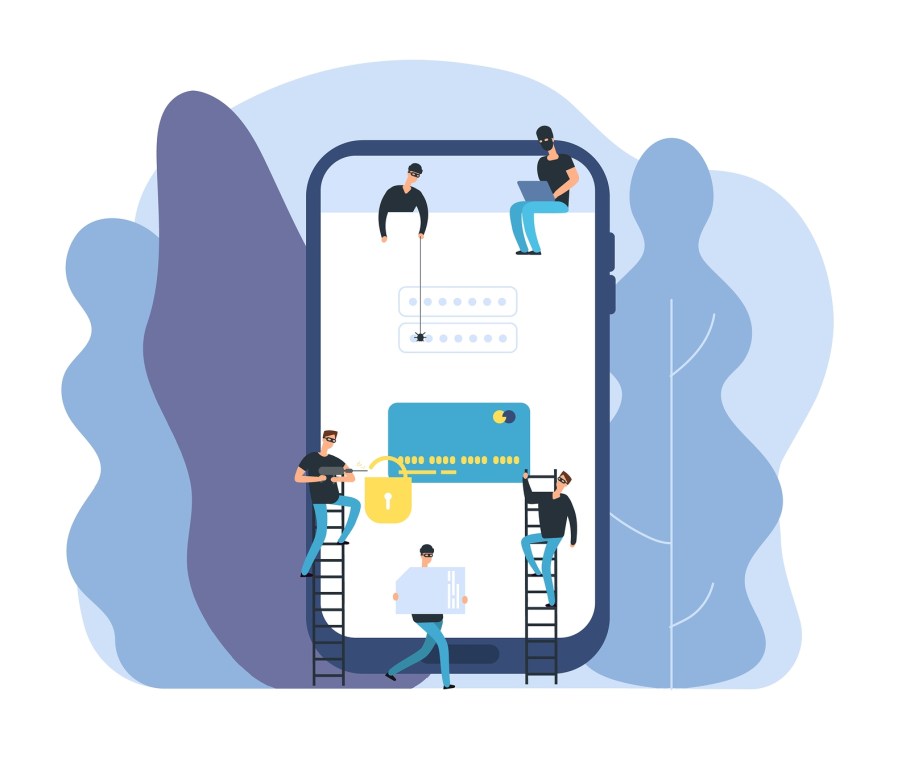How Enterprises Confront Mobile Security Threats
According to the report conducted by Enterprise Mobility Exchange, "all it takes is one security breach on an employee’s corporate-owned mobile device in a public network, and a hacker could easily gain access to proprietary company data."
Mobile devices are becoming an integral part of business operations. Thus, in addition to their regular activities, enterprises have to cope with mobile security threats. Yet, they are constantly losing this battle.
This especially concerns the enterprises engaging digital nomads in their projects, as accessing a private network from an insecure connection brings great risks.
Even the organizations with strong online security policies applied can fail to deal with these security threats. It happens mostly due to the lack of visibility into online activities employees carry out using corporate mobile devices. This leads to the occurrence of security loopholes that make the corporate data vulnerable. The mentioned report revealed disturbing results on the matter.
The researchers found out that many organizations had no idea how many times their data was compromised. Additionally, many enterprises lack the information on the devices accessing the internet without VPN.
Limiting employees’ access to corporate network via mobile devices will only lead to new complications in completing the tasks, therefore it is not a solution.
If you are also concerned about the issue, let’s move forward and find an appropriate solution. But firstly, it is essential to name mobile security threats enterprises face globally.
Most damaging mobile security threats
The use of corporate and personal mobile devices inside the corporate network is nowadays becoming a part of routine. However, employees do not always think about the risks the company often face due to their reckless actions. They may store or transmit sensitive business data via mobile, open malicious emails when using the company’s mobile devices, or install unverified mobile applications being connected to the corporate network.
Therefore, the employees create the conditions for the spreading of the following most common and harmful mobile security threats.
Data leakage
Corporate data is the most valuable asset both for enterprises and cyberthieves. It is on the top of hackers’ wish list. According to the above-mentioned report, data leakage cases comprise around 44.59% of all the reported incidents, which is quite impressive. And employees accessing a corporate network via their personal mobile devices put at risk not only their private information, but also business data.
Phishing attacks
Email remains the preferred method of communication for the majority of organizations. Due to the low visibility of personnel's activities, there is a risk someone of your employees opens a malicious email. Thus, hackers may get access to confidential data. About 26% of enterprises lose their sensitive data in the result of phishing attacks.
Insecure apps
The use of unverified apps represents the third most prominent cybersecurity threat for enterprises. 9.46% of enterprises lose their confidential data, as their employees tend to use insecure apps.
Hackers make vulnerable apps, such as management tools, to target employees. Such apps may look incredibly similar to authentic apps, but are actually phony and trick users into revealing private data.
Ransomware
Using outdated antivirus and unreliable VPN services is the core reason why ransomware attacks succeed. Many companies do not realize the significance of regular updates of security software.
According to the report, almost 5.4% of ransomware attacks against enterprises lead to data theft due to the use of unreliable security software.
Measures against mobile security threats
The employees’ lack of caution and neglect of simple security rules when using mobile devices can cause the serious security threats. Here are some measures that will help an enterprise to fight against mobile security threats.
- Do not allow employees to access the corporate accounts using their personal devices. In case of emergencies, restrict them to a reliable or company-owned VPN service.
- Before providing mobile devices to employees, make sure to install a centralized device management tool to give the security team or office authorities a 24/7 access to corporate mobile devices. Thus, in case of security threats or data breach, they can then take prompt action.
- Never allow employees to download unverified apps on company-owned devices. There are multiple tools available in the market designed to lock the access to an app store.
- Apply policies and regulations to keep employees restricted from using office-owned mobile devices for their personal purposes.
- Use remote wipe strategy if crucial data is compromised. This will remove all traces of corporate information from employees’ mobile devices in case of a havoc.
However, implementing these security measures and completely getting rid of the necessity to maintain a proper mobile security level – that’s not how it works. You should regularly perform vulnerability assessment to check the efficiency of the measures applied to make sure no new mobile security loopholes have occurred, and there are no attack vectors for intruders.
Summing it up
Enterprises should change their online security strategies to deal with mobile device security threats. Strict online policies are useless if visibility is not ensured. If a company does not clearly understand how their employees use corporate mobile devices on public networks, they cannot take any appropriate action against cyberattacks and data breach.
By implementing the aforementioned measures, enterprises can significantly improve their mobile security.


